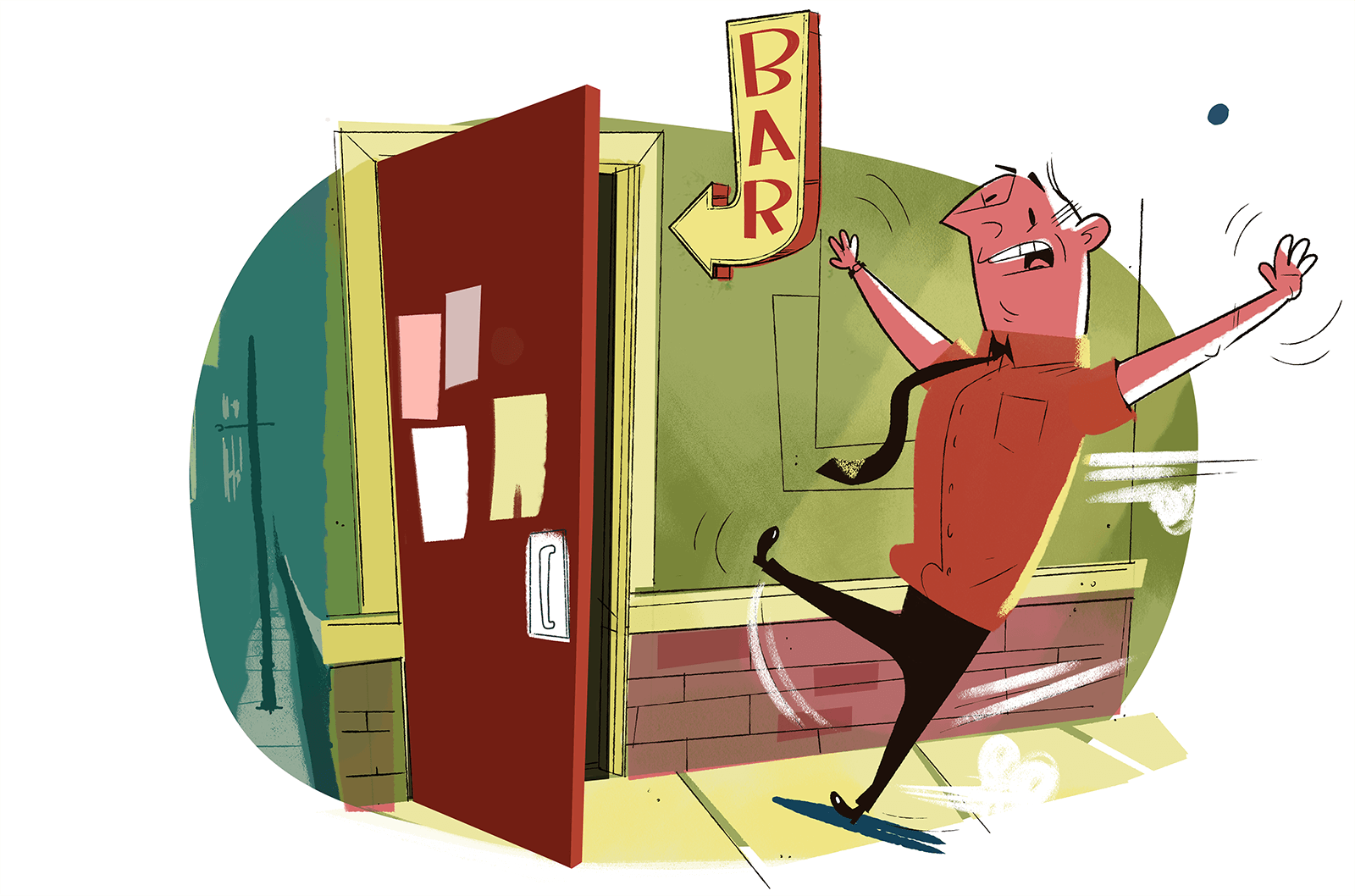 ILLUSTRATION BY BART BROWNE
ILLUSTRATION BY BART BROWNE
I would like to begin by applauding all of you who have learned English as a second language. I struggle with it as a first language, and if it were not my mother tongue I can assure you I would not have learned it at all. It’s impossible! It’s absurd! It makes no sense! Everybody laughs when you say, “In America we park the car in the driveway and drive the car on the parkway.” Ha, ha, ha. Really? What’s so funny? It’s embarrassing, and yet for some reason English has become the lingua franca of modern times.
My heartfelt apologies to the rest of the world.
Take a simple English word like “slip.” One syllable, four letters, and more meanings than an octopus has tentacles. For example: “I slipped coming down the street before I slipped into the bar for a drink.” For a non-English speaker it would be perfectly reasonable to interpret that as: “I slipped on the street and kept slipping right into the bar.” But, as we natives know, it doesn’t mean that at all. The former usage is a literal description of a physical event, and the latter is a figurative expression for making an unobtrusive entrance. (Obviously, sliding into a tavern on your backside would be anything but unobtrusive.) So we have two separate meanings for the same word. So far. We’re not finished yet.
As our friend (let’s call him Bob) “slips” into the bar he meets a colleague and has a conversation:
“How you doing, Fred?”
“I’m supposed to meet Joe and I’m a half-hour late. He’s not here.”
“You’re always right on time. You must be slipping.”
Now imagine a fellow from, say, Germany (we’ll call him Hans) overhearing this and reaching out to grab Fred’s elbow.
“We have two separate meanings for the same word. So far. We’re not finished yet.”
“Can I help you?” asks Fred.
“Your friend said you were slipping,” replies Hans. “I was trying to help.”
“Thank you, but that’s just an expression. I’m fine.”
Bob and Fred continue talking.
Fred: “I don’t blame Joe for not showing. He probably knows I’m going to give him a pink slip.”
Hans: “I gave my wife a pink slip. She loved it.”
Fred: “No, that’s just an expression.”
Bob: “Well Fred, if Joe knows you’re giving him a pink slip he’s probably giving you the slip.”
Hans: “So your friend is giving you a slip, too?”
Fred: “No, that’s a different expression.”
Hans: “I’m sorry, I don’t understand.”
Fred: “I know it’s confusing. I have to fire a co-worker and I think he’s avoiding me.”
Hans: “By disguising himself in a lady’s undergarment?”
Bob: “No, no. That’s a real slip. A slip you wear.”
Hans: “You wear a slip?”
Bob: “No! Women wear them. But it’s not the same as a pink slip. I mean, there are pink slips for women….”
Hans: “So this is just when a woman gets fired?”
Fred: “No! There’s no pink slip. There isn’t a slip at all.”
Hans: “Yet you call it a pink slip? Yes?”
Fred: “It’s a euphemism.”
Hans: “Gesundheit.”
Fred: “I didn’t sneeze but thank you. A euphemism is a nice way of saying something that’s not nice. When a person gets fired in America they get called into the human resources office while uniformed security personnel throw their belongings into a box, confiscate their hard drive, and escort them from the building like a criminal in full view of their co-workers.”
Hans: “And this is a pink slip? I don’t think I will tell my wife. She’ll think I’m divorcing her.”
Fred: “I don’t like firing people but Joe’s performance was slipshod. By that I mean his numbers were slipping. I have a lot of apathy for him. I’m sorry, I meant empathy. It was a slip of the tongue. I certainly hope it wasn’t a Freudian slip.”
Hans: “Bartender, may I please have another glass of beer?”
John Cadley is a former advertising copywriter, freelance writer, and musician living in Fayetteville, New York. Learn more at www.cadleys.com.



 Previous
Previous
 Previous Article
Previous Article